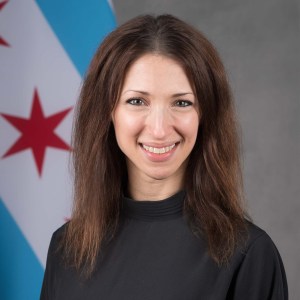This entry is part 3 of 6 in a continuing series that was interrupted by the recent elections and our initiation of our first action with our FOI Center. Please see these other entries if you need a refresher on the subject matter: Illegal Detention – Part 1 of 6, Civil Trial – Part 2 of 6. This class action suit was brought on Oct. 10, 2004 . While Lopez’s case was making its way through the federal trial court, Chicago Police Superintendent Terry Hillard retired. On his last day of work, August 15, 2006, he circulated a general order that had been rewritten 20 years earlier but never circulated.
This general order was the single written guideline that authorized the procedure of holding suspects past the forty-eight hour deadline. The general order was indeed rewritten 20 years earlier as a response to an earlier federal court class action lawsuit (Robinson v. City of Chicago 638 F. Supp 186 (N.D. Ill. 986)) in response to very similar claims of illegal detention for which the Chicago Police and the City of Chicago lost. The City appealed the case to the Seventh Circuit Federal Court of Appeals. In response to the proceedings, the City settled with the Court of Appeals by communicating to the court that the practice in question had been stopped because the general order authorizing it had been rewritten. What the City failed to communicate to the court is that the order was never circulated and the practice was never stopped. The Dunn case was in fact certified as a class action on October 5, 2005. At this time only class II and III were certified; Class I was certified on June 2, 2006.
- Class I: All individuals held for 16-24 hours within a 24-hour period in an interrogation room from March 15th until the date of certification.
- Class II: All individuals held in a CPD lock-up or detective facility between the hours of 10 p.m. and 6 a.m. at anytime from March 15, 1999 to the date of certification.
- Class III: All persons arrested on suspicion of a felony without an arrest warrant and who were detained by the CPD in excess of 48 hours without a judicial probable cause hearing any time from March 15th until the date of certification.
Classes I and II deal with the conditions individuals are held in short of the forth-eight hour deadline and while important, they do not directly pertain to the issue at hand. Class III does apply and reveals a significant detail within the date that frames the class. Class III is framed by the dates of March 15, 1999 to the date of certification, in this case October 5, 2005. This end date of October 5, 2005 is important because Hilliard had circulated the rewritten general order ending the policy in August of 2003. Had the CPD actually ended the policy in August of 2003 the case would not have been certified to the date of October 5, 2005. T
he decision to certify the class as of October 5, 2005, reveals that the plaintiffs in this case had proven to Federal Court Judge Robert W. Gettleman that the practice once again was not stopped despite representations from the City that they had indeed stopped the practice. This decision by Judge Gettleman to certify the class past Hillard’s date of resignation verifies that the practice of sequestering individuals within interrogation rooms was never even interrupted by the circulation of the rewritten general order. One might ask if the circulation of the general order was really meant to stop the practice or just more propaganda for the media and the public. Propaganda would be used to make the public and the media believe the practice had been stopped when in actuality the practice was continuing.
Also, since the Chicago Police had lost one class action suit and were currently being sued in federal court and starring into the eyes of a second class action suit, why didn’t they stop the practice? The practice must be beneficial to the goals of the Chicago Police Department if despite all the negative issues surrounding the practice they continue to follow it. In subsequent additions of this series, we will explore the benefits to the Chicago Police Department while also looking at the costs to society and more specifically, communities of color in Chicago. The Dunn is case is ongoing; thus, we are still waiting for the results of discovery to be revealed through court documents. This process should be very revealing as to the details of the process of holding suspects past court call. As this data becomes available through court filing, we will make them available through our FOI Center. Next week we will discuss the successful appeal brought by Joseph Lopez in the Seventh Circuit Federal Court of Appeals. His win in appellate court has a significant impact on the future of the Dunn class action suit.



